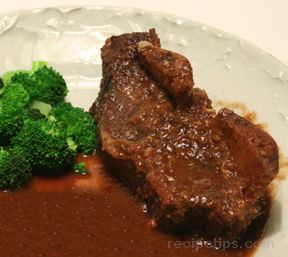What is a Walking Pad, and Can It Help You Lose Weight?
Motion is lotion! Moving your body through a healthy range of motion with light exercise keeps it working smoothly. It can even help prevent future health issues. Luckily, there is a simple solution: a walking pad. Whether you’re working, watching TV, or cooking, a walking pad can help change any sedentary activity into an active one. Their compact size and […]
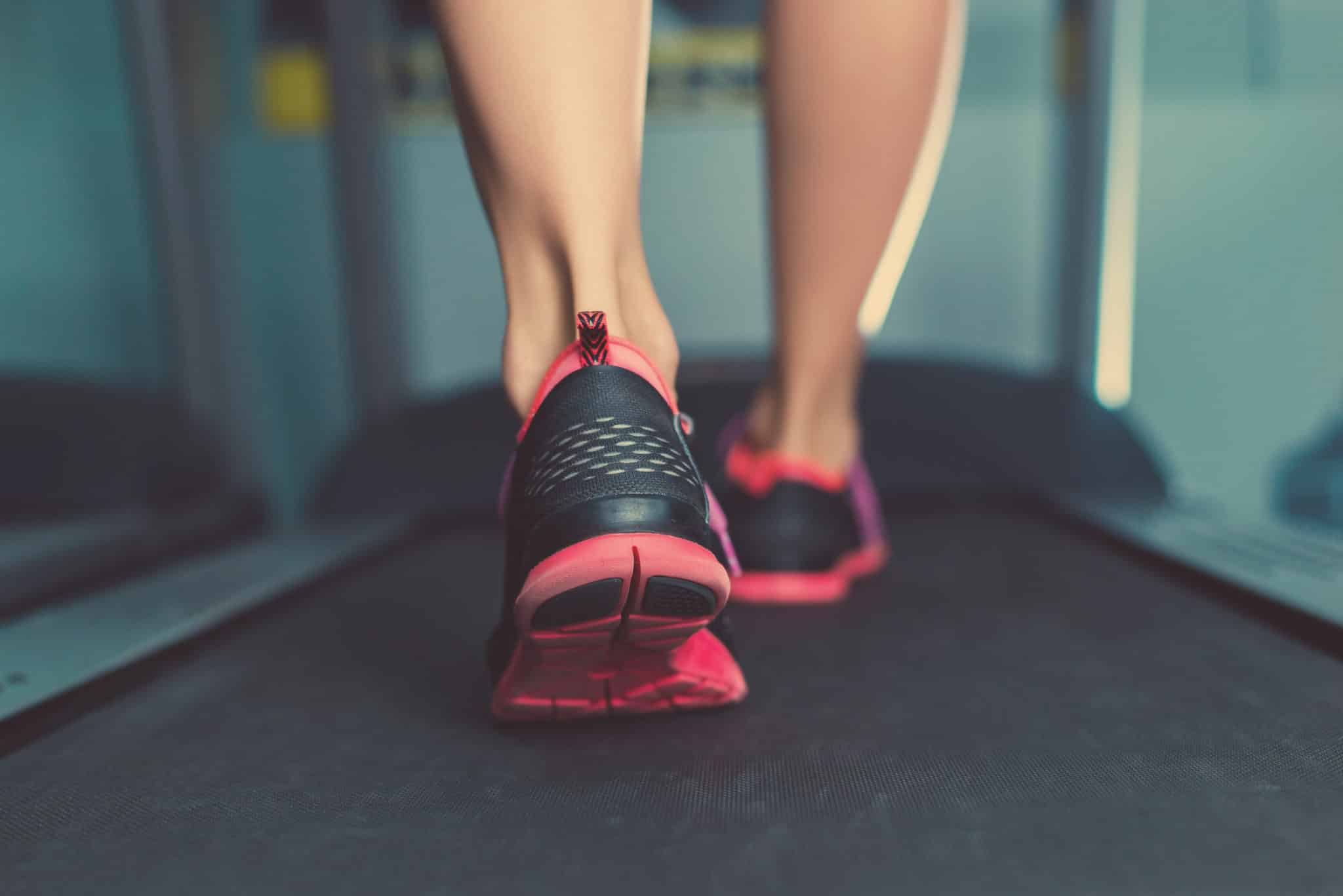
Motion is lotion! Moving your body through a healthy range of motion with light exercise keeps it working smoothly. It can even help prevent future health issues. Luckily, there is a simple solution: a walking pad.
Whether you’re working, watching TV, or cooking, a walking pad can help change any sedentary activity into an active one. Their compact size and affordable lightweight design make them more approachable than traditional treadmills.
Here, we’ll take a closer look at why it’s important to increase your daily steps, everything you need to know about walking pads, and whether or not they’re a good option for weight loss.
Why Your Daily Steps Are So Important

First, let’s dive into why getting more steps in daily matters!
We typically think of movement and calorie expenditure in terms of minutes of exercise. But, a lot of our daily activity actually comes from non-exercise activity thermogenesis (or NEAT).
NEAT includes all the activities we fit into our busy schedules that aren’t “exercise.” Things like walking to lunch, pacing on the phone, cleaning, cooking, climbing up and down stairs, watching your kids, folding laundry, hobbies — the list goes on.
Basically, NEAT is comprised of all the daily tasks that require some kind of physical activity.
Why is NEAT So Important?
Dr. James Levine of the Mayo Clinic explains the importance of NEAT and the worthwhile opportunity for weight loss and other health gains.
Dr. Levine pioneered the treadmill desk, and his studies showed that when a healthy individual walks at a slow pace of around 1-2 mph during the workday, they can burn a significant amount of extra calories. This can make a huge impact in people’s weight loss efforts. It’s not sweaty exercise; it’s just consistent movement!
Levine makes the convincing argument that NEAT could burn up to 1,000 extra calories per day when added strategically to the workday. He also explained that obese individuals perform drastically less NEAT than those within a healthy weight range.
As we begin to understand the importance of NEAT, it’s easy to see how working from home or sitting at a desk all day can be quite an obstacle. How can you incorporate more movement into your day when you’re glued to a desk?
That’s where walking pads come into play!
Walking Pads vs. Treadmills
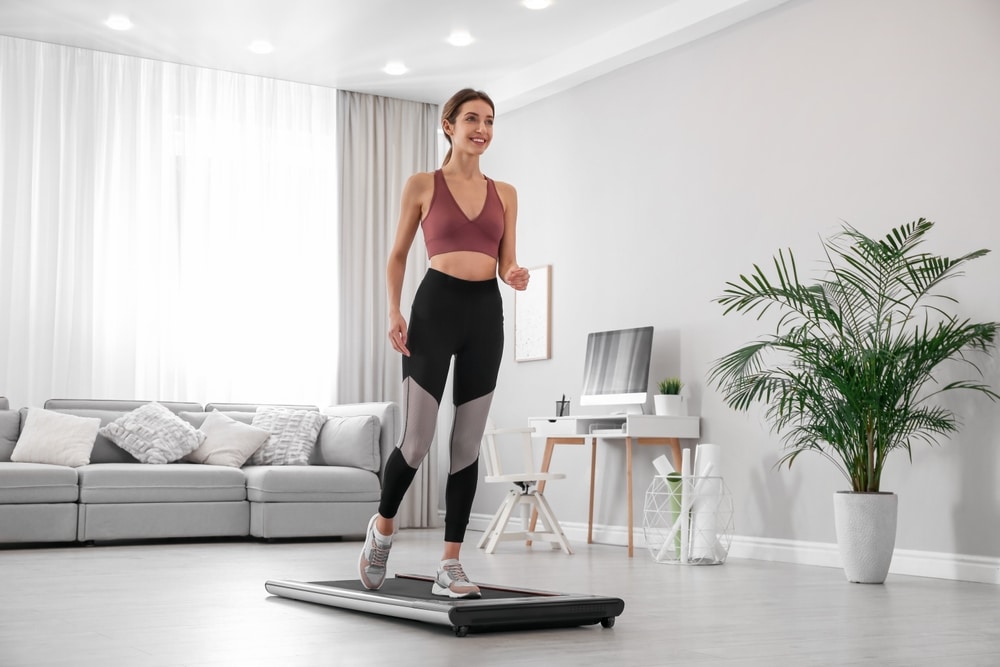
Both walking pads and classic treadmills provide an opportunity for cardiovascular exercise. They are both exercise equipment tools with a user-friendly operation that can be used in a home gym or home office. However, the two have pretty stark differences.
Treadmills
Treadmills are commonly known for their powerful performance and have been a staple running machine in home gyms for years. They are typically heavy and immobile and take up quite a bit of space. Treadmills have many great features, like incline control and higher maximum speed capacities. They can be used for anything from a daily walk to an intense run.
Walking Pads
On the other hand, walking pads are a newer product on the market. With many workers trying to combat sitting at a desk all day and social media trends like cozy cardio, it makes sense that these walking pads are quickly gaining popular product reviews.
These compact treadmill options are smaller, have lower speed capacities, and are usually portable, making them a great option for limited space. They are a simpler, more affordable option that allows you to walk for a long time in your home office or living room. Some have the capacity for running, but not nearly in the same way as a traditional treadmill does.
Benefits of Walking Pads
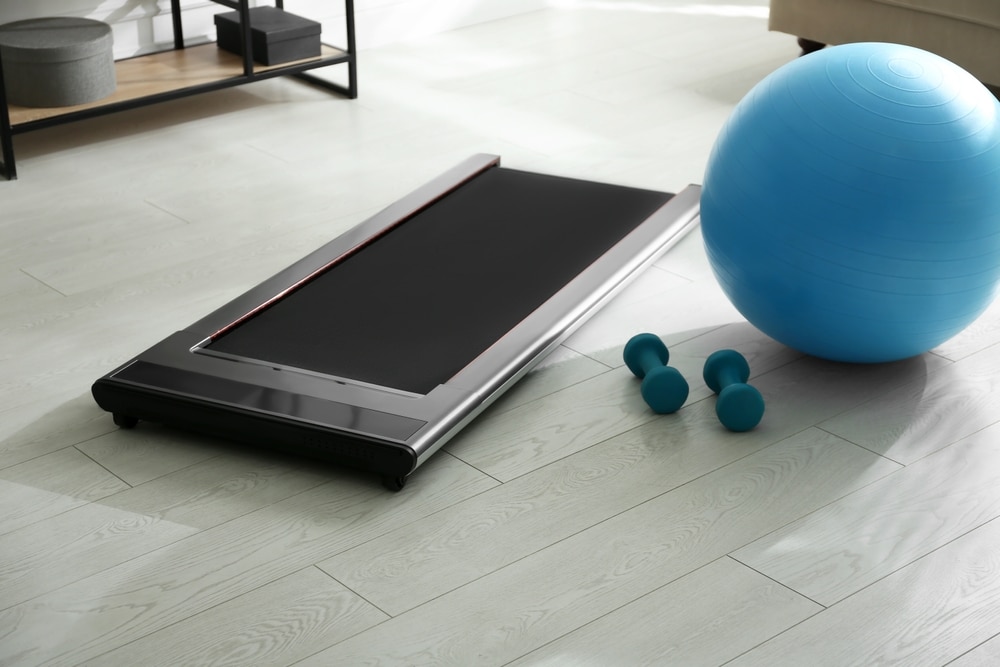
Walking pads work well just about anywhere. Any space from a small apartment to a home will work!
Whether working from home or watching TV, the extra steps will benefit your health and general mobility.
Here are just a few of the benefits of walking pads:
- Increase NEAT activity easily at home
- Compact designs are great for small spaces
- Easy to store when not in use
- Easy way to stay active while working
- Affordable pricing
Getting Started With Walking Pads
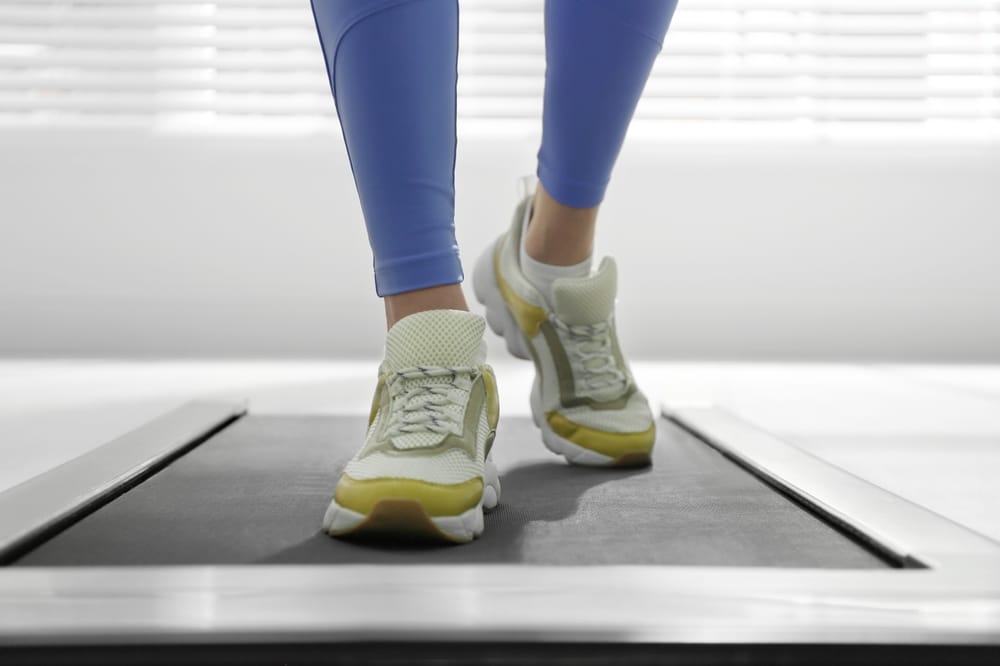
Walking pads are different than traditional treadmills. If you’re just starting to learn about walking pads, here are a few things you should know:
- Speed Capacity: Walking pads are made for slower movement than treadmills. Most walking pads have various speeds and will top out at a certain point. Top speed can max out around 4 miles per hour. If you’re looking for higher speeds or an option for running, a traditional treadmill might be a better fit.
- Incline: Most walking pads do not come with an adjustable incline feature. There are some available, but the added functionality typically makes them bulkier like regular treadmills.
- Portability: This is the beauty of the walking pad. It works well in small spaces. The compact design allows for easy storage under desks, beds, or standing against the wall, saving you valuable space. Some models are even foldable.
- Size: These machines are made to be compact. Small, foldable, and movable designs are popular!
- Weight Capacity: The weight capacity for walking pads is much lower than a traditional treadmill. Common weight capacities are around 200-250 pounds. You’ll want to choose an option that works with your weight limit.
- Walking Pad Affordability: The good news is, since they are smaller and simpler than traditional treadmills, they are more affordable, too! Many walking pads fall within the price range of $200 to $500.
- Data Tracking: Fair warning: A fitness tracker on your wrist like the Apple Watch may not accurately record your steps if you’re working at a standing desk. Typing and resting your arms on the desk will throw off the tracking. Luckily, most of the walking pad models have features that report your speed, time, distance, and calories burned.
So, Can a Walking Pad Help You Lose Weight?
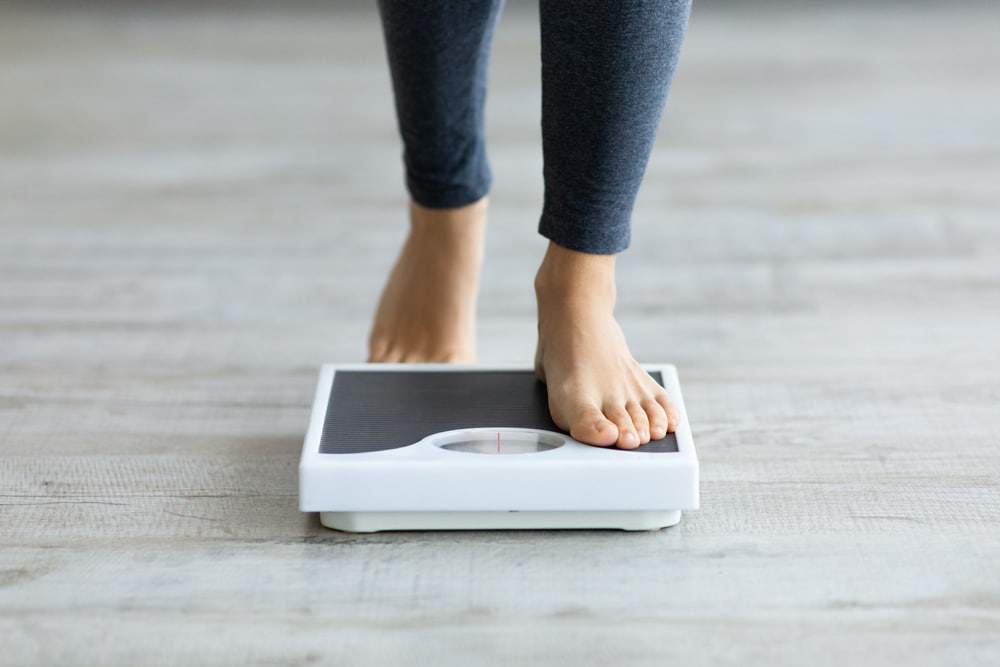
In short, yes! Incorporating more steps into your day with a walking pad will definitely help increase your calorie expenditure, which is key for weight loss.
That said, there’s no black-and-white answer when it comes to weight loss. For example, if you walk during your whole day but are also eating a bunch of junky snacks and sugary drinks, weight loss will be much harder!
Walking pads can certainly be helpful in your weight loss journey. If you’re already incorporating a healthy diet and appropriate exercise levels, extra daily movement may help push you towards your goals. The extra low-impact activity can also relieve stiffness and soreness, and help keep your joints lubricated and strong, which helps you stay healthy and avoid injury.
Strength training, core exercises, and yoga are all great additions to expedite your weight loss journey. Walking pads can help with weight loss when you incorporate them into a well-rounded strategy!
How Many Steps Do You Really Need A Day To Lose Weight?
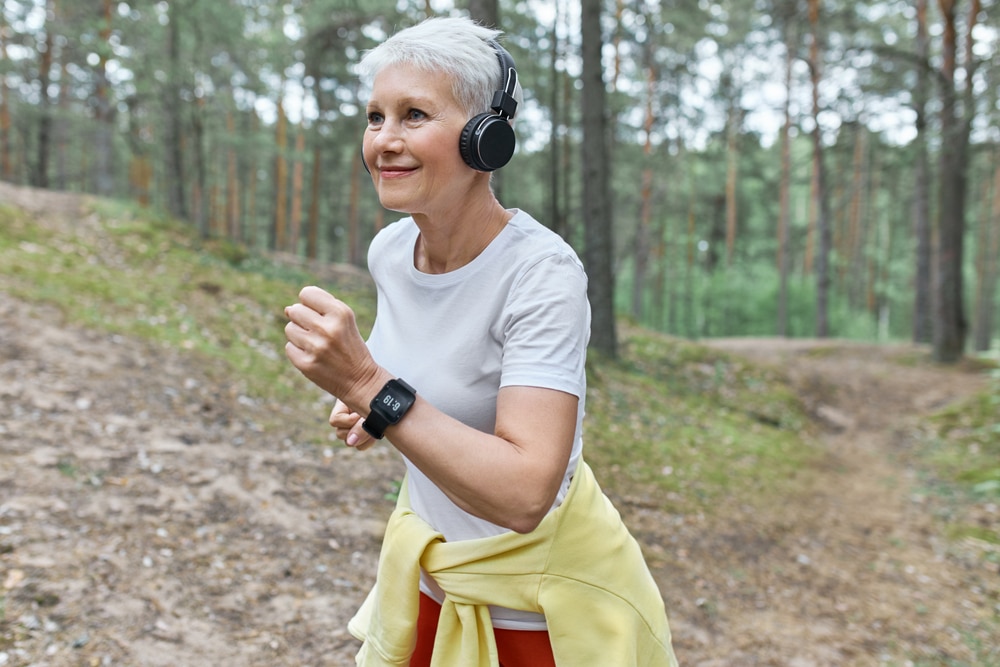
Are you wondering how many steps a day you need to lose weight?
When it comes to your daily step count, speed, intensity, and consistency actually matter more than just the total number if you’re serious about weight loss!
Here, we’ll explore how many steps a day are best for your weight loss goals.
How Many Steps Do You Really Need A Day To Lose Weight?
Strength Training for Women Over 50: 11 Best Moves
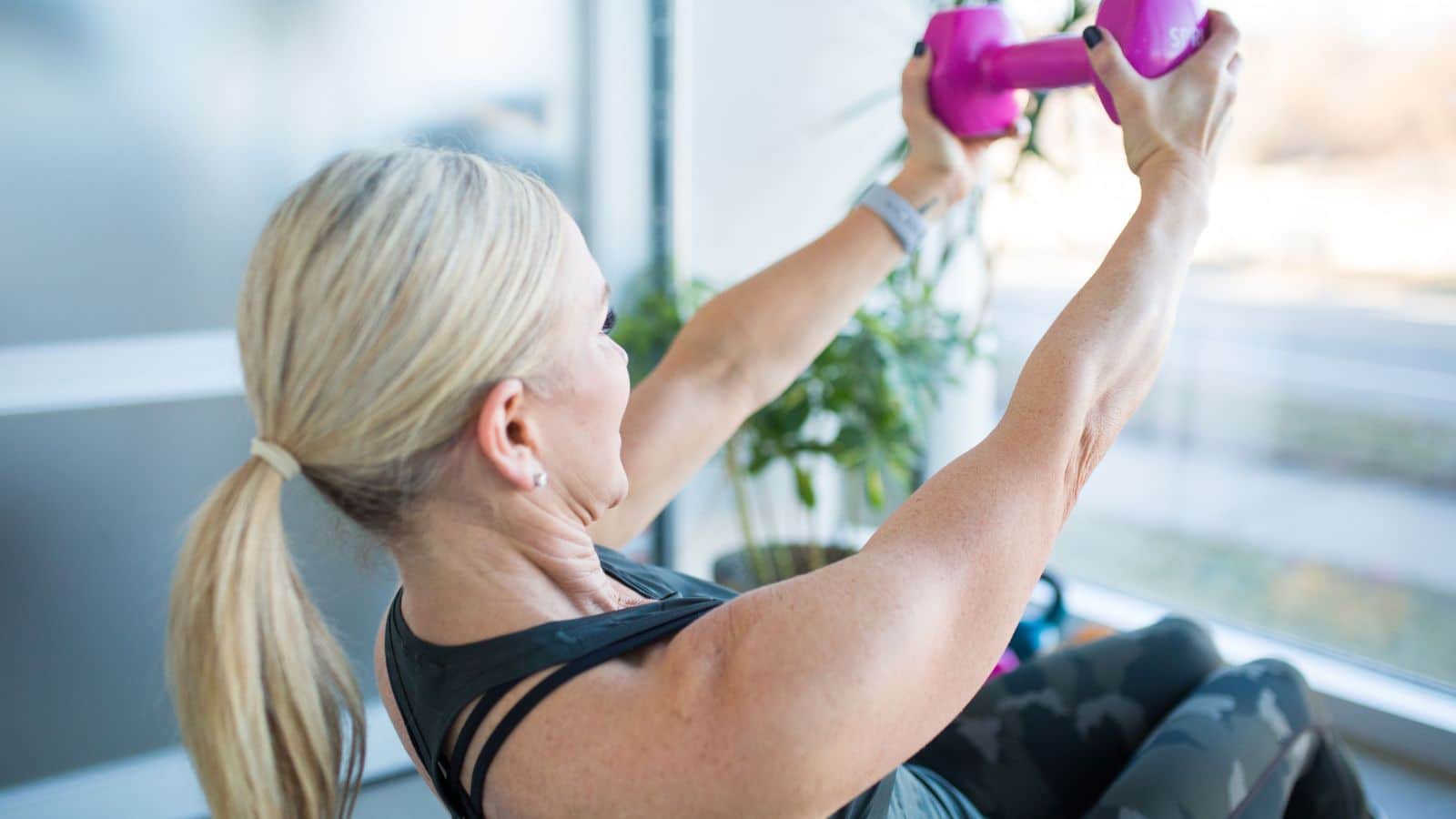
There are many factors involved in maintaining good physical and mental health as you age, but one of the most important things to consider as you grow older is weight training.
These strength training exercises are proven to get results for women over 50!
Strength Training for Women Over 50: 11 Best Moves
9 Hip-Strengthening Exercises for Seniors
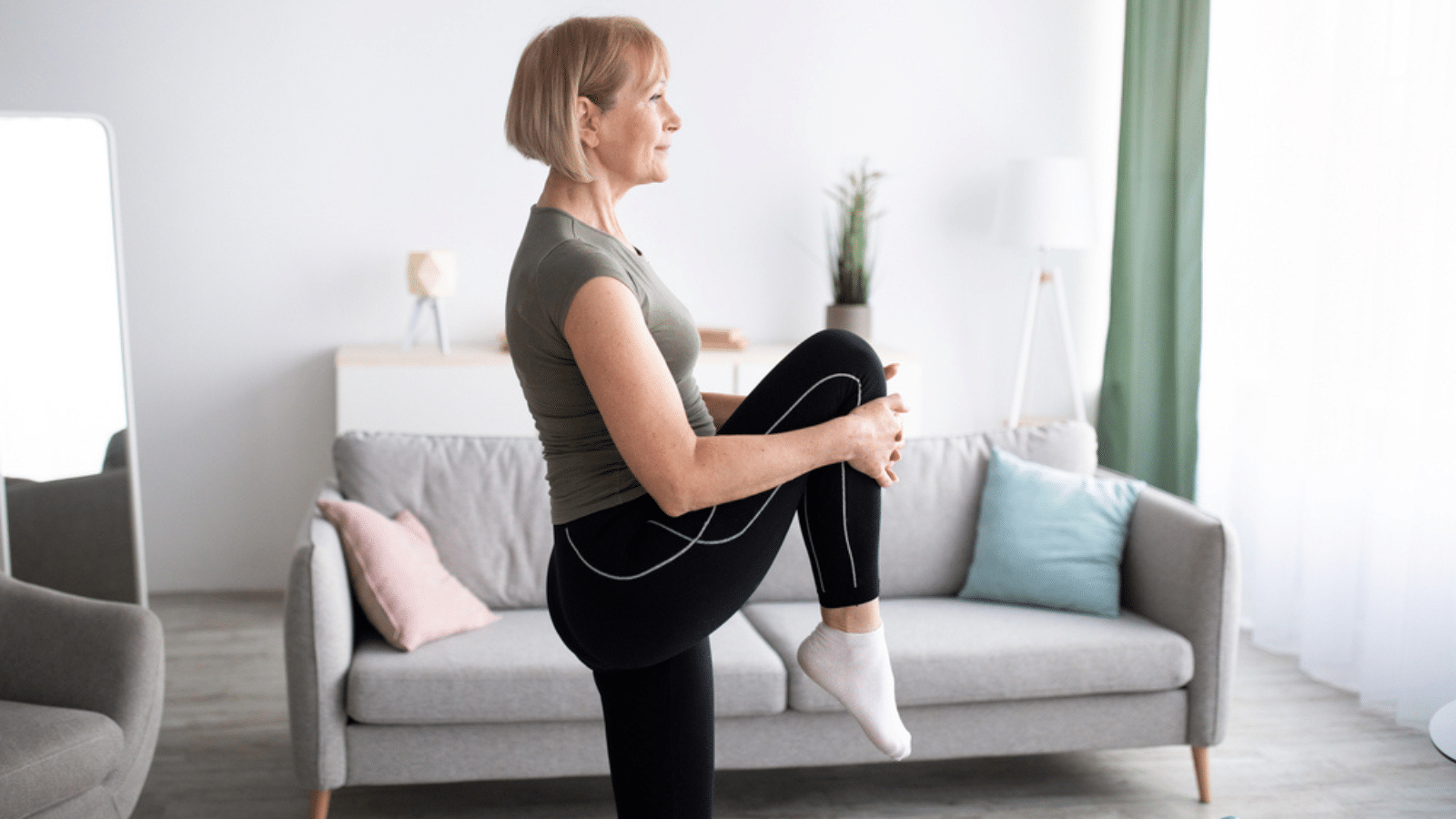
As the largest joint in your body, your hips play a central role in healthy aging.
These mighty structures enable you to perform a wide range of daily activities, from standing to walking to climbing stairs—so it’s hardly surprising that hip weakness and pain can be debilitating to your everyday life!
What's Your Reaction?



















































































